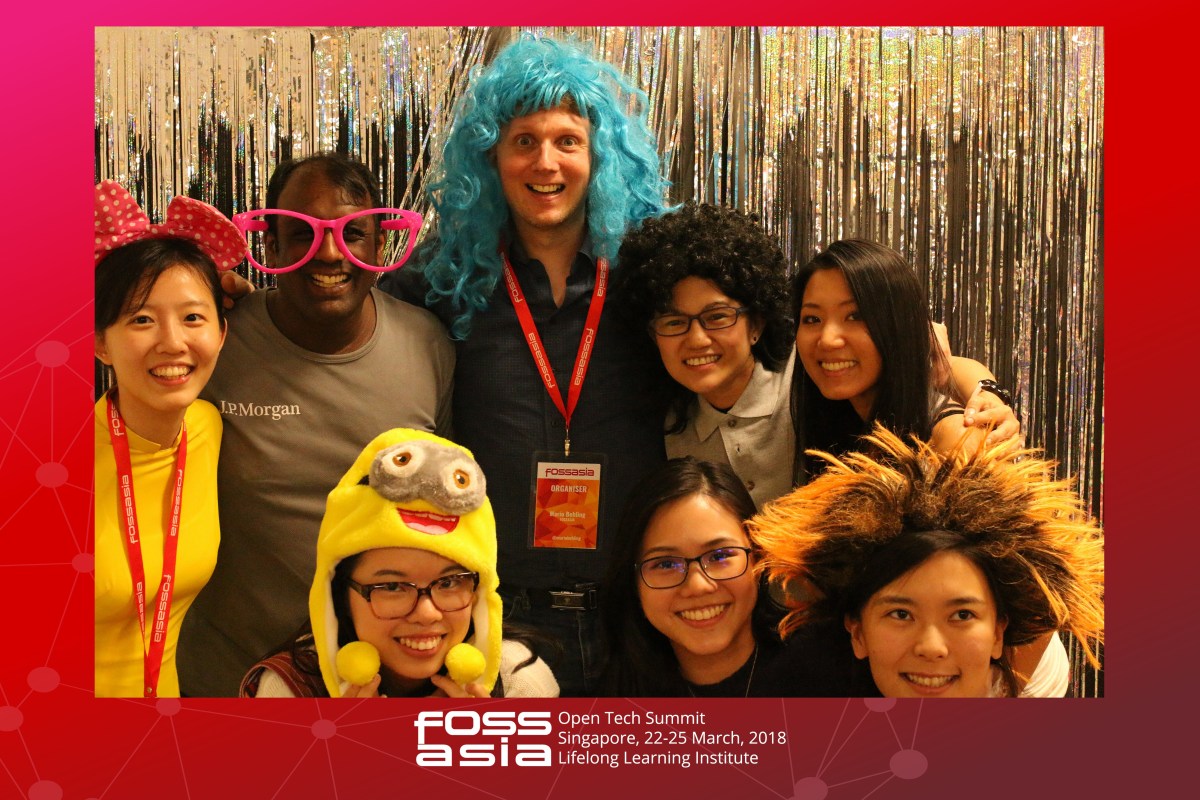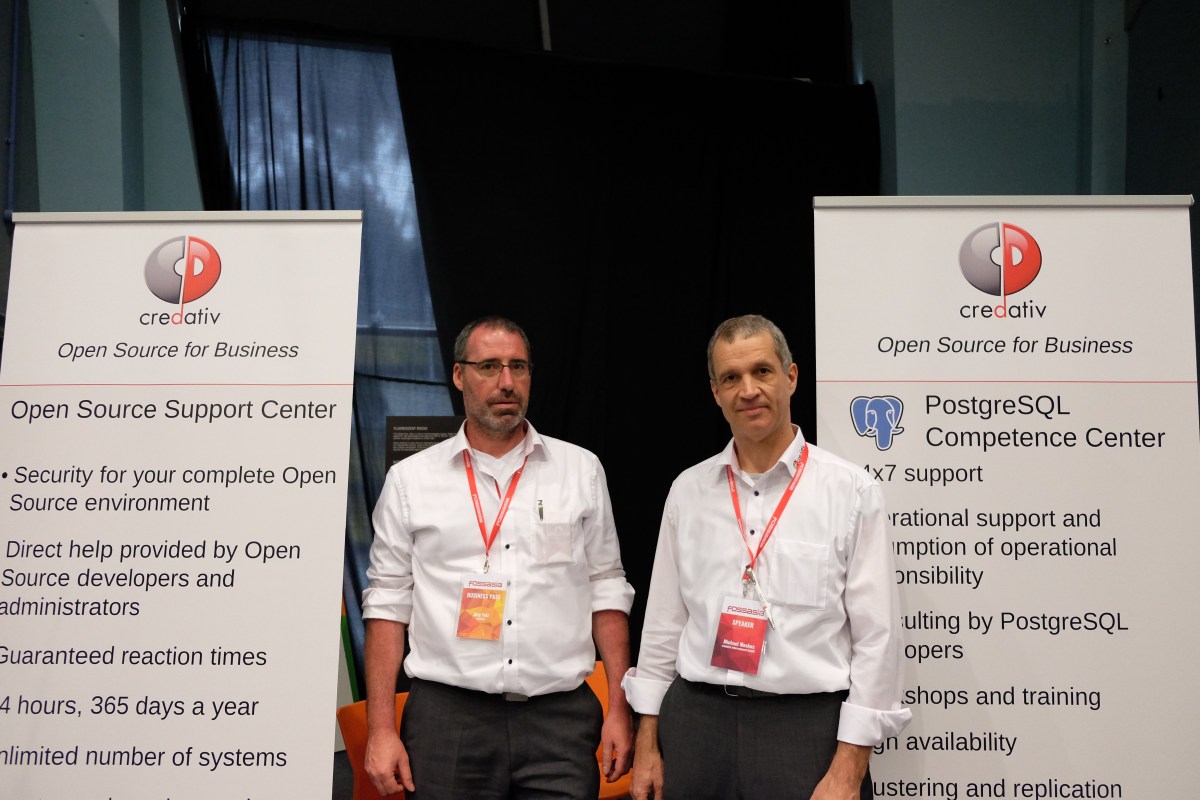FOSSASIA Summit 2024 Recap: Highlights of Asia’s Biggest Open Source Conference in Hanoi, Vietnam
The FOSSASIA Summit was a remarkable gathering of innovators and collaborators, with 5,055 participants from 50 countries converging in Hanoi for this prestigious event. Impressively, over 90% of attendees were Vietnamese, underscoring the local enthusiasm for open source technology. The conference featured a diverse lineup of 206 speakers across 215 sessions, encompassing panel discussions, talks, and workshops, providing invaluable insights and knowledge sharing opportunities. In addition, a diverse array of exhibitors, representing businesses and developer user groups from around the globe, showcased their projects and services at the event. The summit’s reach extended far beyond the venue, with over 300,000 viewers tuning in to the live stream, highlighting its global impact and significance in the tech community.

Attendance & Engagement
- Total Participants: 5,055
- Countries Represented: 50
- Speakers: 206
- Sessions and Workshops: 216
- Media coverage: appearances on 36 news channels and 3 TV stations
- Live Stream Views: 300,000 views
The FOSSASIA Summit 2024 witnessed a remarkable turnout of students and young developers, comprising 63.7% of attendees, breathing new life into the open-source world. Their excitement and involvement promise a bright future for open source, showing that the upcoming generation is ready to bring fresh ideas and energy to the table. Their active participation in discussions and collaboration with industry experts demonstrates their potential to drive innovation and ensure the continued success of the open-source community.

Content Overview
The FOSSASIA Summit 2024 presented an extensive lineup of sessions catering to a diverse range of interests and expertise. Participants had the opportunity to participate in the Web3 Builders’ Days, focusing on Ethereum and Arbitrum, offering insights into building and launching Web3 projects on the expansive Ethereum ecosystem. The Database track, highlighted by PostgreSQL Day, provided valuable insights into maximising system efficiency and performance. Operating System discussions centered around openEuler, an Asian-born open-source operating system tailored for digital infrastructure needs. AI & Cloud sessions explored a myriad of topics including OpenAI, GenAI, LLMs, K8s, CI/CD, OpenTelemetry, and WebAssembly, shedding light on cutting-edge technologies shaping the future of artificial intelligence and cloud computing. Cybersecurity discussions addressed critical topics such as Passwordless authentication, Zero Trust principles, Privacy enhancements with TOR, Supply Chain Security, Network Security, and the rising challenges posed by Quantum Threats. Additionally, the summit featured insights into Open Source Hardware and Semiconductor technologies, notably RISC-V, as a solution for open semiconductor design and integrated system development, alongside initiatives in open source firmware development. With a schedule brimming with informative sessions, workshops, and networking opportunities, the FOSSASIA Summit 2024 provided a platform for collaboration, learning, and innovation in the open-source community.
Web3 Builders’ Day
The Web3 Builder’s Day attracted 1,000+ participants throughout the conference. Engaging sessions offered attendees a comprehensive exploration of blockchain technology, Ethereum, Arbitrum, Ethereum’s layer 2 scaling solutions, alongside indispensable smart contract development tools. From introductory overviews to advanced discussions, participants delved into a spectrum of topics, including development tools, integration strategies, technical architecture, and innovative solutions for scalability challenges. Through hands-on activities and in-depth discussions, participants gained practical skills in building decentralised applications, and explored emerging technologies such as zero-knowledge proofs and secure multiparty computation.
FOSSASIA PGDay 2024
FOSSASIA PGDay 2024 was a lively two-day event all about PostgreSQL, the world’s top open-source database. With 20 speakers and experts from around the globe, it brought together 537 participants onsite. PGDay was full of diverse talks and workshops that kept everyone engaged. Networking opportunities were everywhere, letting people connect with PostgreSQL leaders and the community. Conversations covered various topics like alternatives to MongoDB, how PostgreSQL works on the inside, Asia’s evolving business landscape, and practical aspects like data replication and performance testing. Overall, FOSSASIA PGDay provided an immersive platform, offering enriching experiences and invaluable insights into the world of PostgreSQL and its interconnected technologies. Find more details about PGDay at 2024.fossasia.org/pgday
openEuler and Operating System Day
The operating system track at FOSSASIA Summit 2024 provided an insightful journey into the world of openEuler, highlighting its significance across various domains. Participants were introduced to the project’s vision, technical architecture, and the vibrant OS community landscape. Throughout the sessions, attendees gained a deep understanding of crucial topics such as vulnerability management, software packaging, memory management systems, and the nuances of sharing computing power and data between different operating systems through distributed softbus technology. Overall, the track served as a comprehensive guide for participants, equipping them with valuable insights and practical knowledge essential for navigating the complex ecosystem of operating systems and enhancing their understanding of openEuler’s role in shaping the future of OS technologies.
FOSSASIA 2024 Hackathon
FOSSASIA collaborated with Devfolio to organize a digital hackathon preceding our annual FOSSASIA Summit 2024, with a primary emphasis on familiarizing developers with Chainlink technology. The hackathon took place from April 5th to 7th and drew the participation of 1,100 individuals. Impressively, 43 teams successfully navigated the challenges and advanced to the final stage. Ultimately, four winners were selected by the panel of jury members to receive a prize. Check out all Hackathon projects at fossasia-hackathon.devfolio.co
Exhibition
The exhibition at FOSSASIA Summit 2024 was a bustling centre of activity, offering attendees a rare chance to engage directly with top-tier organisations, projects, and communities within the open-source sphere. Boasting an impressive roster of exhibitors, including esteemed names like openEuler, Ethereum, MySQL, Fujitsu, and AWS, alongside leading tech companies and open-source projects, the exhibition showcased the diverse tapestry of the open-source ecosystem.

Attendees seized the opportunity to network with representatives from these entities, forging valuable connections and laying the groundwork for potential collaborations. Job seekers found opportunities for recruitment. Beyond networking and recruitment, the exhibition served as a dynamic platform for the exchange of knowledge, enabling attendees to stay abreast of the latest advancements in open-source technology.


The FOSSASIA Social Events
During the FOSSASIA Summit 2024 conference, attendees were treated to a variety of engaging social activities designed to explore the vibrant culture of Hanoi, Vietnam. The Morning Run for FOSS around the scenic Hoan Kiem lake embraced the spirit of open source wellness. Or the Hanoi Historic Tour offered an opportunity to explore iconic landmarks, providing insights into the city’s heritage.

As night fell, attendees gathered at Ta Hien Beer and Food Street to experience the charm of Hanoi’s nightlife, sharing insights, networking, and forging new connections amidst the bustling atmosphere of bars and food stalls.

The FOSSASIA Summit’s main social event featured local cuisines and a cultural program showcasing Vietnamese artists, providing a memorable finale to the conference while celebrating the diverse culture of Vietnam. These social activities not only enriched the conference experience but also provided an opportunity for attendees to immerse themselves in the cultural fabric of Hanoi, creating lasting memories and fostering meaningful connections.

Feedback and Satisfaction
The feedback for FOSSASIA Summit 2024 was overwhelmingly positive, with 85.2% of respondents expressing very high satisfaction with the overall experience. Networking opportunities and Learning & Development emerged as the top two reasons for attending the event, reflecting the value attendees placed on connecting with peers and gaining knowledge. The quality of content and speakers was highlighted as the most commendable aspect of the conference, indicating the success of the organisers in curating engaging sessions and securing knowledgeable presenters. Impressively, 85.1% of participants felt they were able to connect with potential candidates, employers, or business partners, underscoring the effectiveness of the event in facilitating meaningful interactions.
Direct quotes from participants further underscored the positive sentiment towards the summit. A first-timer remarked “I was truly impressed by the dedication to learning exhibited by participants; it was inspiring to witness individuals of all ages, including a 70-year-old, actively engaging with speakers”. A returning participant expressed their appreciation for the online translation system, stating ‘The system effectively broke down language barriers and enhanced the conference experience.” A regular attendee said “FOSSASIA provides the most concentrated learning experience I encounter all year, maximising my knowledge gained per second compared to any other activity”
Acknowledgments
We extend our heartfelt gratitude to all speakers, sponsors, volunteers, and attendees who contributed to the success of the FOSSASIA Summit 2024. Your support and dedication are instrumental in advancing open source technology and fostering a vibrant community.
A massive thank you goes to PTIT for their exceptional hospitality, and our heartfelt gratitude to our sponsors and partners, who played a pivotal role in bringing this summit to life:
- Platinum Sponsors: openEuler, Ethereum Foundation, Arbitrum
- Hackathon Sponsor: Chainlink
- PGDay Sponsors: Fujitsu, AWS
- Gold Sponsors: Arm, Google, MySQL, OPNTEC
- Silver Sponsors: ByteDance, Bitergia, Angelhack, Linagora, Mercari, OnlyOffice, Varnish, CosmosDB, Devfolio, YDB
- Media Partners: Linux Magazine, Hanoi News & Television, ICT News Vietnam, Vietnamnet, and Multimedia PTIT Club.
Find out more about FOSSASIA
- Check out the photo of this year’ss on our photo album
- Watch the session videos on our YouTube channel
- Scan through the speaker slides at this year’s summit schedule pages
Media Coverage
Hanoi News & Television (Đài Truyền Hình Hà Nội)
- 3.000 người từ 60 quốc gia quy tụ tại FOSSASIA Summit 2024
- Diễn giả Việt truyền cảm hứng công nghệ tại FOSSASIA Summit 2024
- Dấu ấn FOSSASIA Summit 2024: Xác lập kỷ lục người tham gia
- FOSSASIA Summit: Điểm đến lý tưởng cho sinh viên mê công nghệ
- Hàng nghìn sinh viên, lập trình viên tham dự FOSSASIA Summit 2024
- Cập nhật công nghệ hàng đầu thế giới tại FOSSASIA Summit 2024
- Chuyên gia khuyên doanh nghiệp Việt phát triển điện toán đám mây
- Hơn 200 diễn giả tham dự hội nghị CNTT quốc tế
- Hà Nội là thành phố lý tưởng để trao đổi công nghệ
- Thời sự 19h | 08/04/2024
- Thời sự 18h | 08/04/2024
Vietnam National Television (Đài VTV)
- FOSSASIA Summit 2024: Cập nhật các xu hướng mới về giải pháp nguồn mở
- Weekly Tech News by VTV2 (min 4:16 – 7:46)
Vietnam Digital Television Network (Đài truyền hình VTC)
ICT News Vietnam (Tạp Chí Thông Tin và Truyền Thông)
- FOSSASIA Summit 2024: tiếp cận công nghệ mở trong AI, đám mây, tiền điện tử và phần cứng
- FOSSASIA Summit 2024 hội tụ các chuyên gia hàng đầu bàn về công nghệ hấp dẫn nhất
Cơ hội giao lưu, kết nối tại FOSSASIA Summit 2024
PTIT
Vietnam Government Portal
VDCA
Business & Development
- FOSSASIA Summit 2024: Quy tụ các giải pháp công nghệ tiên tiến
- Hội nghị thượng đỉnh FOSSASIA Summit 2024
Liberation Saigon
New Journal
Legislation & Society
- FOSSASIA Summit – cầu nối tiếp cận các giải pháp công nghệ tiên tiến nhất
- FOSSASIA Summit 2024 – Hội nghị thượng đỉnh về Công nghệ thông tin và Nguồn mở Châu Á sắp diễn ra tại Hà Nội
Enterprise & Life
Cybersecurity Magazine
Vietnamnet
Petrotimes Magazine
Voice of Vietnam, Department of Foreign Affairs, VOV5
- 40 quốc gia tham dự Hội nghị thượng đỉnh về công nghệ thông tin và nguồn mở châu Á
- FOSSASIA Summit 2024 sẽ diễn ra vào tháng 4 tới tại Hà Nội
VTC Digital Television Network
Life & Science
Vietnamese Youth Magazine
Vietnamese Magazine
Consumer Electronics
- Sắp diễn ra Hội nghị thượng đỉnh về Công nghệ thông tin (CNTT) & Nguồn mở Châu Á
- Khai mạc Hội nghị thượng đỉnh về công nghệ thông tin và mã nguồn mở châu Á
Life & Consumers
Economics & Beverage
VNMedia
Dantri International (DTiNews)
Marketplace Margazine
International Newspaper
The Manager Magazine
Magazine of Labour and Social Affairs
Environment & Construction Magazine
Knowledge.net
Hanoian Magazine
Enterprise and Green Economy Magazine
investor.id
Infokomputer.id

























































































You must be logged in to post a comment.